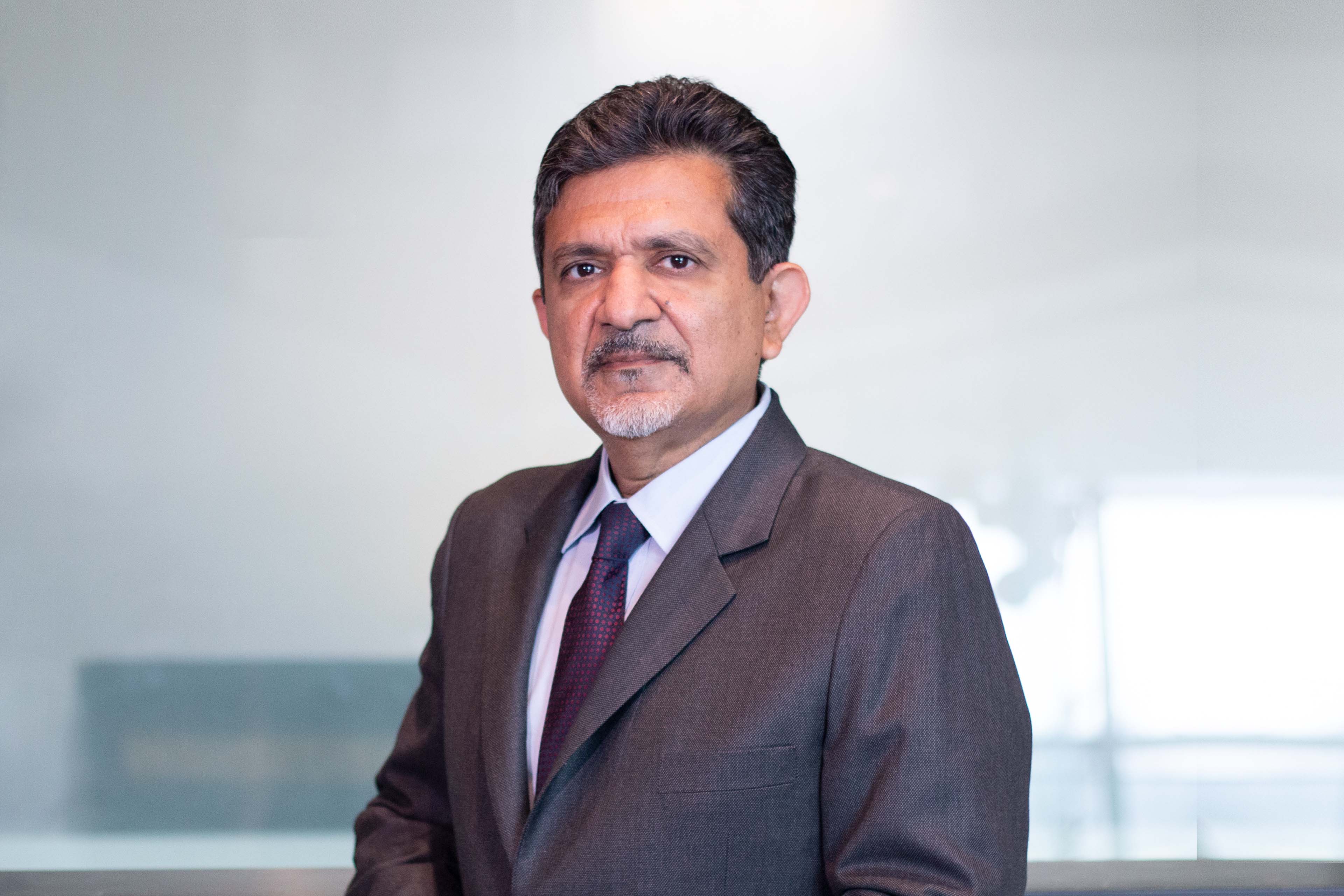EY refers to the global organization, and may refer to one or more, of the member firms of Ernst & Young Global Limited, each of which is a separate legal entity. Ernst & Young Global Limited, a UK company limited by guarantee, does not provide services to clients.

Is your organization upholding its integrity standards?
In emerging markets, integrity standards seem to be improving, but amid disruption, strong corporate governance is needed to prevent wrongdoing.
This article is an emerging markets perspective of the EY Global Integrity Report.
In brief
- The vast majority of emerging market respondents say that standards of integrity have improved, or remained steady, over the last 18 months.
- In periods of rapid change, respondents admit that it’s hard for them to maintain their integrity standards.
- Organizations need to strengthen corporate governance, establish an integrity culture and demonstrate the value of integrity beyond regulatory compliance.
Emerging market economies face a number of challenges as they seek to recover from a global pandemic that has yet to run its course. Supply chain disruptions, geopolitical tensions in Asia, the financial crisis in Sri Lanka and the war in Ukraine are some of the crises that may compel organizations and their people to behave unethically.
Nevertheless, the EY Global Integrity Report 2022 suggests that integrity is improving in emerging markets. Of the 2,756 emerging market board members, senior managers, managers and employees surveyed (from 33 countries and 27 sectors), 92% say that standards of integrity have either improved or remained steady over the last 18 months.
Almost all respondents (97%) say that corporate integrity is important. More than three-quarters of respondents (76%) indicate that the standards of behavior that employees expect from management have risen in recent years.
While this is good news, 62% admit that it’s challenging for organizations to maintain their standards of integrity in periods of rapid change or difficult market conditions. Nearly half (46%) say that the pandemic has made it harder to conduct business with integrity.
EY findings suggest that, although emerging market countries are on a path toward improving integrity, much work remains to close the “say-do” integrity divide that exists between how companies present their performance vs. tangible action. EY teams offer five ways that emerging market executives can maintain or improve integrity standards and good corporate governance in ways that help to minimize external threats and sustain long-term value.
1. Mind the regulatory compliance gap
Thirty-six percent of emerging market respondents indicate that they have had sanctions applied to address behaviors that fail to uphold integrity (a slight increase from 32% in 2020), while 45% say that they conduct regular training on relevant legal, regulatory or professional requirements, up from 39% in 2020. Further, nearly one-third (31%) say that they have incentives in place to encourage behaviors that demonstrate integrity.
Yet, according to the findings, 38% of emerging markets respondents report that regulators have taken action against their organization for breaching integrity standards or regulations. “Often, governments in emerging markets foster a business and investment-friendly environment. Aggressive enforcement action would be seen as counterproductive to attracting sought-after investments for economic growth and benefits,” says Ramesh Moosa, EY ASEAN and Singapore Forensic & Integrity Services Leader. Therefore, the number of times regulators could have taken action could be higher in reality.
Key Actions:
- Organizations should implement strong corporate governance throughout and consider integrity as more than a compliance box-ticking or risk management exercise. C-suite executives need to implement strong corporate governance throughout the organization that fosters real protection against regulatory enforcement actions, its assets and its reputation, all of which can drive long-term, sustainable value.
- Shift the focus from prescriptive training to education around the importance of integrity at both the corporate and personal levels. Employees will perform better if they understand why and how the business does things, instead of being expected to just follow the rules and codes of conduct without a second thought. This approach makes integrity more than a matter of legal necessity. It becomes a moral imperative.
2. Create a people-centric culture of integrity
It's important to recognize that systems and processes don’t commit fraud – humans do. Although our survey highlights that integrity standards are improving, an increasing number of employees are willing to compromise their ethical standards. Forty percent of board members agree that unethical behavior in their organization is often tolerated when the people involved are senior or high performers.
Roughly half of both board members (52%) and senior managers (47%) surveyed agree that there are managers within their organization who would sacrifice integrity for short-term financial gain. Thirteen percent of board members admit that they would offer or accept a bribe, and 14% of board members admit that they would falsify financial records.
The best governance and compliance frameworks can be rendered ineffective if the underlying culture is not one of doing the right thing. This makes building a strong integrity culture just as important as the governance policies and the control environment that underpins it. The need for a strong integrity culture and accountability has been further elevated as work from home policies have come into play as a result of the pandemic.
“Creating a culture of integrity, where ethical behavior is supported and rewarded, and people are empowered to do what is right, offers a number of benefits. It can help reduce regulatory risk, improve employee morale and build stakeholder confidence in a company’s ability to deliver on its promises,” states Arpinder Singh, EY Global Markets and India Forensic & Integrity Leader.
Key actions:
- Establish consistent, tone-from-the-top leadership around integrity. This includes everyone at the board and promoter levels, down through the C-suite. Employees need to see that integrity cascades from the highest levels down through the grassroots of the organization.
- Hire people who will support an integrity culture and empower them to live the organization’s values within their own framework of beliefs, supported through training and education around ethics, and through tools to help them make the right decisions.
- Develop key performance indicators that measure integrity and tie performance to remuneration, promotion and succession.
3. Encourage a speak-up culture
Overall, emerging market respondents believe that the whistleblowing environment has improved over the last three years: 39% say that it has become easier for employees to report their concerns, while 30% indicate that whistleblowers are now offered more protections. Meanwhile, 41% of emerging market respondents say that they have reported issues.
On the flip side, 36% of emerging market respondents in our survey admit that they have had concerns that they have chosen not to report. The biggest reason cited is that respondents don’t feel their concerns will be heard. Nearly one-third (31%) admit they don’t report wrongdoing because they fear for their safety.
“There is an increasing trend in Africa that whistleblowers are reluctant to blow the whistle due to their fear of retaliation, as well as limited or no protection if they do,” says Sharon Van Rooyen, EY Africa Forensic & Integrity Services Leader. “Recently, the plight of the whistleblowers has been in the spotlight as they have put their livelihoods and often their lives at risk. What we have noted is that there is an increased need for enhanced legislation to ensure that whistleblowers are protected.”
Key actions:
- Provide employees with the opportunity to report wrongdoing in good faith and protection so that they can feel safe doing it.
- Build and enhance a whistleblowing program as part of a broader governance framework. This is especially true in relation to remote or hybrid working.
- Celebrate integrity in the same way as other metrics or milestones. By bringing integrity to the forefront of business priorities, companies can differentiate themselves from their competitors as good corporate citizens and good employers.
4. Protect the data, protect the company
Overall, 27% of emerging market respondents rank cyber attacks and ransomware as the third highest risk to the long-term success of their organization. This concern is unsurprising, and perhaps should rank higher, given that, over the last 12 months, one in five (19%) emerging market survey respondents admits that their organization had a major cybersecurity breach.
These findings come despite the fact that 88% of emerging market respondents say that they are confident that their organization is doing everything it needs to protect the organization from data security breaches, while 86% express confidence in their actions in protecting the privacy of customer data.
With so much of the world talking about privacy, there’s an opportunity for emerging market companies to do more.
Key actions:
- Develop and implement a sound cybersecurity and data integrity program that builds trust among stakeholders and can help them comply with competing data privacy and cybersecurity requirements across different jurisdictions.
- Put the right technology tools and training in place to detect and respond to cyber attacks.
- Create a culture that makes cybersecurity everyone’s responsibility.
5. Avoid greenwashing the environmental, social and governance (ESG) story
Although ESG reporting is only inching its way onto board agendas in emerging markets, more than one in 10 respondents (12%) see it as a top risk to the long-term survival of their company. One-third (33%) of emerging market respondents say that their company has a policy on either corporate social responsibility (CSR) or ESG. However, our survey shows a gap between what companies say that they have in the way of an ESG policy and how they demonstrate accountability.
Greenwashing is increasingly ineffective in convincing employees, customers and society of an organization’s true ESG performance. “As more Middle East companies see their integrity standards discussed externally by the public, investors and stakeholders, and as social and governance aspects gain attention, companies that fail to adhere to high standards of ethics and integrity in these areas, as well as the environment, will score poorly across all elements of ESG,” says Nader Rahimi, EY MENA Forensic & Integrity Services Leader.
Key actions:
- Develop an operational framework that incorporates ESG as a vertical, as well as an integral, part of each function.
- Harness the power of your data to measure your integrity culture.
- Build processes and controls that can turn ESG programs into long-term value creators.
It’s time to close the integrity “say-do” divide
In our experience with clients, we’ve seen a shift among organizations to refocus their integrity strategies on being proactive rather than reactive. Many organizations have increased their integrity awareness training and fraud risk assessments, which has been key to understanding and managing corporate integrity risk. There’s also been greater emphasis on conducting more proactive due diligence of third parties.
However, now is not the time to be complacent. As consumers, regulators and investors turn up the heat on transparency, emerging market leaders need to keep “walking the talk” on corporate integrity to close the “say-do” integrity divide.
Summary
The findings of the EY Global Integrity Report 2022 suggest that, in emerging markets, integrity is improving. However, close to half also admit that the impact of the COVID-19 pandemic has made it harder to act with integrity. Furthermore, as long as economic, geopolitical and employment issues continue, so will the appetite for wrongdoing. Organizations in emerging markets must strengthen corporate governance and establish an integrity culture to combat misconduct and safeguard long-term value.
How EY can Help
Related articles
Four ways for companies in emerging markets to prioritize integrity
Discover how organizations operating in emerging markets can reduce misconduct, build trust and create long-term value.



